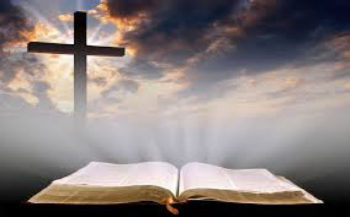Introduction to Ezekiel, a book of mysteries and God’s glory
Historical Background of Ezekiel, a book of mysteries
Read 2 Kings 24:1—25:21, 2Chronicles 36:1-20 and Jeremiah 1. What happened to the nation of Judah and why? Who were taken captive?
Here is an introduction to Ezekiel Excerpted from the New Inductive Study Bible ©2000 Precept Ministries International. Published by Harvest House Publishers, Eugene Oregon 97408. www.harvesthousepublishers.com. Used by Permission.
In 622 B.C. the book of the law was found in the house of the Lord. When it was brought to King Josiah, he wept for he saw the awfulness of Judah’s sin and knew that God’s wrath burned against them. Although Josiah was determined that Judah would walk after the lord and keep His commandments, the prophets Hulda told him that after his death God would have to bring judgment upon Judah, for they had forsaken God (see 2kKngs 22).
God’s judgment on Judah began when King Josiah tried to stop Pharaoh Neco, king of Egypt, on his way to Carchemish on the Euphrates in 609 BC (see 2 chronicles 35:20-27). Neco killed Josiah on the plane of Megiddo, then four years later in 605 BC Neco was defeated at Carchemish by Nebuchadnezzar king of Babylon (see Jeremiah 46:2)
Ezekiel was 18 years old when a handful of the nobles and princes were captured by King Nebuchadnezzar and taken from Judah to Babylon. Among them were a 15-year-old boy named Daniel, and his three friends, Hanniah, Mishael, and Azariah. Ezekiel, however, was left behind. At age 30 he would be eligible for the priesthood and would spend his life in service to God in the temple at Jerusalem. Or so it seemed.
For almost 10 years things were relatively quiet in Judah. The prophets were bringing good news, prophesying peace. The people loved it and continued in their sin. Only one lonely voice disturbed their peace—the voice of Jeremiah. Then Jehoiakim, king of Judah, rebelled against Nebuchadnezzar (2 Kings 23: 20:36—24:4 when Jehoiakim died, Jehoiachin became king, and in 597 B.C. Nebuchadnezzar once again besieged Jerusalem. This time 10,000 people were taken captive into Babylon, and Ezekiel, who would soon have been eligible for the priesthood, was among them. Never again would he see Jerusalem or the temple where he was to serve. Both would be destroyed by Nebuchadnezzar in 586 B.C.
But Ezekiel would see another temple and another Jerusalem—one which would be called Jehovah- Shama, the Lord is there! For at age 30, Ezekiel had a vision.
Outline of Ezekiel
- chapters 1-24 Judgment against Judah and Jerusalem – given as warnings to repent
- chapters 25-32 Judgment against other nations – any idea why? Because they were somehow involved in hurting Israel (Judah) or not coming to its aid or plundering Israel (Judah), taking advantage of her loss.
- chapters 33-48 Blessings on Israel – under a new watchman, a new shepherd and defender, blessings restored, repulsed attack of Gog, new temple, new worship, new land
Characteristics of Ezekiel, a book of mysteries and God’s glory
- historical and chronological – look for dates and event throughout the book
- prophetic, signs, symbols, visions, and apocalyptic events to reveal God’s glory and his messages to the Jews.
The Interpretation of Prophecies and Apocalyptic literature
-
- Context is vital to interpretation. This prevents wild and gross misinterpretations. Identify the general context of what is happening in the world of that time, especially in the Mid-East, and what is happening in their local areas of concern. Where would this be in the book of Ezekiel?
Who are the characters involved in the story? What do we know about them?
Answer 2
- Prophecies are not usually chronological, but most of the book of Ezekiel is in sequence.
- Prophecies have double reference – people see mountain peaks of prophecy, not the valleys of time in between. Prophecies have a near fulfillment which is partial, and a future fulfillment which is or will be complete.
- Correlation – similar passages in this book should lead the interpretation when the context of the present text seems unclear. Correlation can then go to the secondary level where other authors of Scripture mention details of these events.
Answers:
- Although he was not explicitly mentioned, it is probable that Ezekiel was once one of the Jerusalem citizens (a future priest) taken to Babylon. They were taken to Babylon because of generations of gross unrepentant sin. Could God do something similar with us? Today is the day of repentance and forgiveness. If you are a follower of Jesus Christ, you too, were chosen to proclaim a message, a message of eternal life instead of facing the judgments of hell. But, like Ezekiel, we must be holy priests (1 Peter 2:9) and excellent ambassadors of Jesus Christ (2 Corinthians 5:20).


